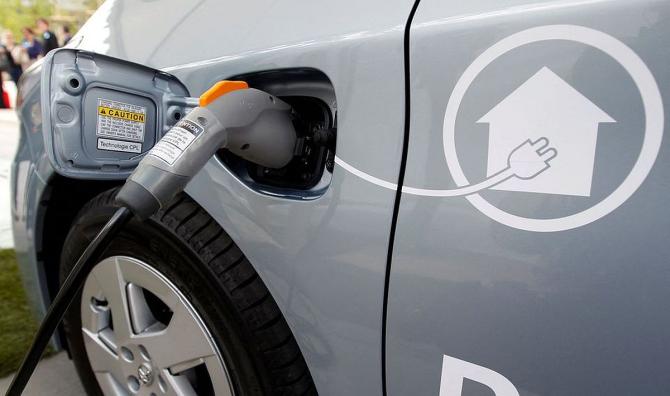At a time when consumers increasingly embrace green mobility solutions, it is not electric cars but hybrids that are taking the lead, as automotive sales data indicate.

Since January, 64,097 electric cars have been sold compared to 266,465 hybrids, according to data from the ministry of road transport and highways’ Vahan dashboard.
Hybrid car sales have surged from 4.42 per cent of the 4.1 million cars sold in calendar year 2022 to 7.2 per cent this year.
The surge in hybrid car sales can be attributed to Japanese automotive industry giants such as Maruti Suzuki India, Toyota Kirloskar Motor, Honda Cars India, Lexus India, and others expanding their range of mild and strong hybrid vehicles.
Hybrid vehicles come in three categories: mild hybrid, strong hybrid, and plug-in hybrid electric vehicles (PHEVs).
While mild hybrids currently dominate the market, industry experts anticipate a shift in the landscape with a series of upcoming strong hybrid launches.
“At present, the share of mild hybrids in total hybrid sales is more than 90 per cent.
"However, as strong-hybrid launches get accelerated, it is set to change,” says Puneet Gupta, director at S&P Global.
A mild hybrid vehicle is equipped with a compact 48-volt battery and an electric motor that enhances the performance of the internal combustion engine (ICE).
The vehicle primarily operates using ICE, with additional support from the battery, resulting in improved overall efficiency.
In contrast, strong hybrids operate with two power sources: ICE and electric motors, typically with a capacity of 1 kilowatt hour (kWh).
The ICE powers the vehicle and simultaneously recharges the battery.
When the battery is sufficiently charged, the electric motor propels the car for a limited distance before the engine resumes control, and this cycle repeats.
PHEVs are equipped with a larger battery, typically ranging from 5-15 kWh, and come with a charging cable for recharging.
Maruti Suzuki has established itself as a front runner in the hybrid vehicle market, introducing six mild hybrid models, namely the Ertiga, Brezza, Ciaz, XL6, Grand Vitara, and the Fronx, which are labelled as ‘smart hybrid cars’.
Additionally, Maruti Suzuki boasts the most extensive range of strong hybrids, including the Grand Vitara and Invicto, referred to as ‘intelligent electric hybrid cars’.
Impressively, Maruti Suzuki single-handedly accounts for approximately 77 per cent of the total hybrid vehicle sales.
Toyota ranks as the second-largest seller of hybrid vehicles.

The company offers models like the Innova HyCross, Urban Cruiser Hyryder, Camry, and Vellfire, all featuring their hybrid technology.
The Honda City now features the Hybrid e:HEV variant.
The Swedish luxury vehicle manufacturer, Volvo Cars, introduced its latest line-up of petrol mild hybrid cars in the Indian market.
This 2023 collection encompasses the petrol mild hybrid editions of their flagship sport utility vehicle (SUV), the XC90, the midsize SUV XC60, the compact SUV XC40, and their luxury sedan, the S90.
Not all on board
While Japanese manufacturers are making significant investments in hybrid technology, domestic players such as Tata Motors and Mahindra & Mahindra currently have no intentions of introducing hybrid vehicles.
Tata Motors chairman Natarajan Chandrasekaran, in an interview earlier this year, had said that the company does not have plans for hybrids at the moment.
Hyundai Motor India has also expressed that the existing taxation framework doesn’t favour the introduction of hybrid vehicles, and the company will consider launching them once certain concessions are made available.
At present, strong hybrid vehicles, like conventional ICE vehicles, fall under the highest goods and services tax (GST) slab rate of 28 per cent, coupled with an additional compensation cess of up to 22 per cent.
In contrast, electric vehicles (EVs) are subject to a 5 per cent tax rate.
The high GST on hybrid vehicles is leading automotive manufacturers to shift their focus towards EVs.
Tarun Garg, director (sales, marketing, and service), Hyundai Motor India, in an interview, has said that under the current taxation structure, EVs appear much more logical than hybrids.
“We have hybrids globally, and in case the government wants us to bring hybrids, we can.”
EVs also enjoy the advantage of substantial government subsidies.
Under the Faster Adoption and Manufacturing of (Hybrid &) Electric Vehicles in India (FAME-II) scheme, there’s a budget of Rs 26 crore allocated for providing subsidies to strong hybrid cars, amounting to a maximum of Rs 13,000, as long as they fall within the price limit of Rs 15 lakh.
On the other hand, EVs can receive subsidies of up to Rs 1.5 lakh.
However, this subsidy hasn’t been distributed to any strong hybrid vehicle buyers since all strong hybrids typically exceed the Rs 15 lakh price threshold.
Automotive industry experts feel that the high cost of ownership, lack of incentives, and high taxes will hinder the growth of hybrid car sales in the country.
“The sales of hybrid cars are supply driven whereas EV sales are demand driven. Japanese automakers pushing hybrid models are giving momentum to the sales but the high cost of these cars would result in the tapering of sales in the long term,” Gupta added.












 © 2025
© 2025